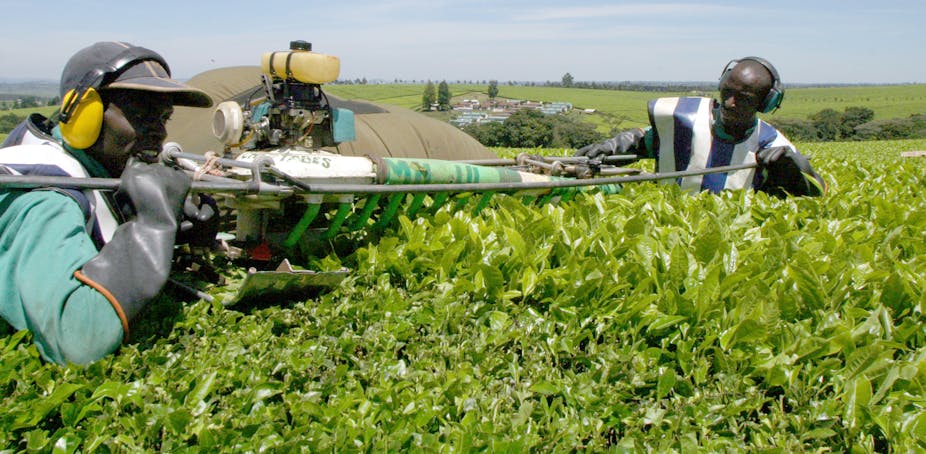Introduction: What and Why
Hello!
My name is Henry Wigston. I am a third-year geography student at UCL. I’m taking a module about water and development in Africa. I am writing a blog over the few months focusing on the link between water and food in Africa. The blog itself will focus more specifically on a few sub-topics. In this first blog I will discuss the wider nature of the food and water topic.
Why Water
and Food?
The blog
will be centred around the topic of water and food for a few reasons. Primarily
because water and food are such important aspects of daily life, and the
adaption to water stress or water scarcity is very interesting. Secondly, the idea of a dramatic lack of food and ‘mass starvation’ is a very commonly
perceived imagined geography of Africa. I would like this blog to break through
the stereotype. In future weeks I will discuss some of the advanced and
adaptive farming techniques, new integrated technologies, and the future of
food production in Africa.

The type of media representation rarely seen when portraying agriculture in Africa.
(Source)
The global
demand for water, energy and food is increasing. Africa must ensure that it can
utilise its resources efficiently in a way that connects all three. The sixth UN
sustainable development goal was to “ensure availability and sustainable
management of water and sanitation for all” (United
Nations, 2019). However, the first and second SDGs surrounded the topics of
hunger and poverty. The link between water, food and poverty is incredibly
strong, water is directly necessary to sustain life, as well as indirectly
necessary in the growth and production of food (Taylor,
2004).
Fresh
water is arguably one of the most valuable resources in the world. At its most
basic level it is consumed by each individual to drink. Domestic water usage in
Africa is around 12.6% of the total withdrawal volume. Comparatively, 83.1% of
freshwater withdrawals go to agriculture. The reason that agriculture and food
production draw such a higher proportion is due to the amount of water it takes
to grow food. Around 2,500 litres of freshwater is required to grow a kilogram
of rice (Bouman,
2009). With only around 4% of crop land in sub-Saharan Africa irrigated, dependence
on rain led irrigation leaves communities very vulnerable to drought (Giordano,
2006).
In this blog I won’t be focusing
on one area of Africa, but I will be focusing on specific topics that can be
discussed across the continent, taking examples from different places. I will
be discussing the following topics:
- ‘Improved irrigation’ and the saline intrusion of
aquifers
- Virtual water: strengths and limitations of the
concept
- The economics, conflict and politics behind water
and food
- The future of African technology and indigenous
knowledge
I think an important part of this
blog will be removing the preconceived ideas of agriculture in Africa. I want
to demonstrate how in many ways, the existing indigenous farming knowledge is
much more advanced than the comparative knowledge in well irrigated areas. The
wild and rugged African cliché is no longer an acceptable discourse. I believe
a short satirical piece by Kenyan author and journalist Binyavanga Wainaina captures
this perfectly with the quote “Remember, any work you submit in which people
look filthy and miserable will be referred to as the ‘real Africa’” (Wainaina, 2005).
So, to complete Wainaina’s irony,
I must end this post with a quote from Nelson Mandela, but maybe a more
positive one that can make us think about the future advancement of African development:
“It always seems impossible until it is done” – Nelson
Mandela
I look forward to writing this blog
and exploring some of the more interesting topics surrounding water and food,
advancing knowledge and contributing to the academic conversation surrounding
the subject.
Thanks for
reading,
Henry
I think the outlined topics sound really interesting, especially when stereotypes of Africa's water food nexus are broken down. I look forward to reading your next post!
ReplyDeleteThanks Max, I really appreciate the time you took to read the blog!
Delete